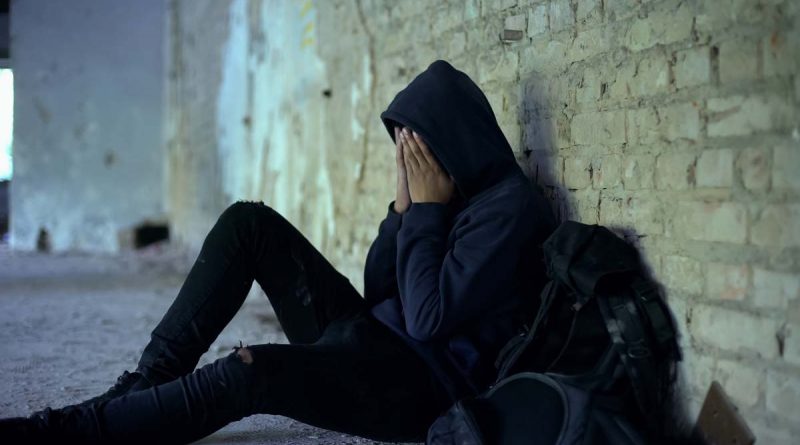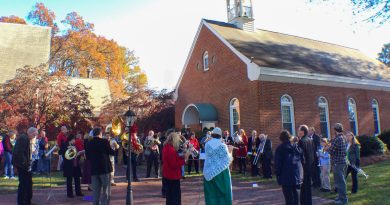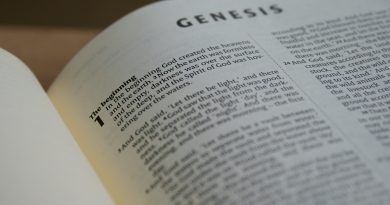The Church, Stigma, and Unintentional Harm
by Robert Rominger, Ph.D.
Internal Medicine, Atrium Health Wake Forest Baptist Medical Center
Having worked as a psychologist with patients in an HIV treatment program for over fifteen years, I have often seen how the conflict between rigid cultural constraints and a person’s emerging sense of who they truly are damages self-esteem. The feeling of not being accepted by religious family members and the broader “Christian” community not only takes a toll on a person’s self-worth but frequently directs them toward unhealthy means of managing the internal conflict. The very existence of the smoldering debate within religious denominations, the Moravians included, over the degree of acceptance of people with diverse sexual orientations or gender identities within our faith communities serves to reinforce the otherness of the LGBTQ+ population that leads to estrangement and social isolation, depression and self-loathing, substance use and other forms of self-harm, and higher rates of suicidal thoughts and behavior.
In subjugating expressions of identity to moral pronouncements (rooted in cultural fears and biases rather than genuine scriptural understanding), we layer on the burden of discrimination at the same time we remove the protective factors of social connection, healthy activities, appropriate moral guidance, and an affirming faith. This harm is further enhanced in a society that often tolerates discrimination by race, ethnicity, faith, gender, sexual orientaion, and sexual identity, which leads to disparities in financial and social stability, housing access, and quality of healthcare. As Christians, it is our responsibility to reconcile rather than ostracize, build bridges rather than walls. The Apostle Paul wrote, “Each of you should look not only to your own interests, but also to the interests of others.” (Phil. 2:4), resonating with the message of Jesus’ parable in Matthew 25: “As you have done unto one of the least of these . . . you have done unto me.”
That being said, the debate is a reality. Perhaps by calling attention to the unintended consequences of stigmatizing LGBTQ+ individuals, we might prompt an examination of our own underlying insecurities that give rise to a fear of the other in all its guises. If in the process we reach a point of humility about our own beliefs, perhaps we will find the courage to see the value in people’s life experiences that seem foreign to our own.
Youth on the LGBTQ+ spectrum are two to three times more likely to attempt suicide than their peers who identify as their birth sex. For the trans population, that figure may be up to ten times higher.
Many studies have confirmed that youth on the LGBTQ+ spectrum are two to three times more likely to attempt suicide than their peers who identify as their birth sex (Pascoe & Richman, 2009). For the trans population, that figure may be up to ten times higher (Toomey, Syvertsen & Shramko, 2018). The research studies analyzed by Pascoe and Richman suggest that perceived discrimination is a significant driver of this risk as well as other negative health outcomes. The stress response associated with perceived discrimination reduces the likelihood of participation in healthy behaviors and increases the likelihood of participation in unhealthy behaviors.
Christ turned the concept of discrimination on its head when he asserted: “Blessed are those who are persecuted because of righteousness, for theirs is the kingdom of heaven (Matthew 5:10).” Whether it is because of visions of heavenly bliss, zeal for the evangelical message of the gospel, fearing their right to their beliefs are threatened, or reacting to a perceived loss of privilege, self-identified Christians in the latter day United States seem quick to endorse feeling something in our culture is discriminating against them. In his article “Is There Really Anti-Christian Discrimination in America?” George Yancy identified an “unreasonable hatred and fear of Christians” that he labeled “Christianophobia” and described as pervasive in our culture and prominent in academia (Christian Living, August 19, 2019). Seeming to demonstrate, however, awareness of a potentially more harmful discrimination, “a majority of U.S. Christians (54%)” in 2015 polling indicated “that homosexuality should be accepted, rather than discouraged, by society,” up ten percent from seven years earlier (Murphy, Pew Research Center, December 18, 2015). While that was substantially lower than for the non-religious affiliated (83% acceptance) and members of non-Christian faiths (76% acceptance), the trend is one of Christians moving toward the right side of history.
When we are at our Christlike best we see all other humans as children of God.
In his article, “How Many Moravians Does It Take to Change a Doctrine?” Frank Crouch examined an earlier instance where Moravians were on the wrong side of history (The Hinge, Vol 23(3) Summer 2018, pp 3-33). Crouch analyzed 17th and 18th century attitudes toward slavery through the lens of the tension between what he characterized as Ancient Ways vs. New Ways and Things of This World vs. Things of God. After outlining how pivotal Moravian leaders got it wrong, he wrote: “In the Moravian Church of our day, Moravians around the worldwide Unity are viewing another world-sorting dichotomy that for many seems to have its roots in scripture,” which he boiled down to heterosexual persons in contrast to LGBTQ persons (p. 28). Listing all the potentially relevant scriptural passages, Crouch went on to provide a template for scriptural study in advance of considering resolutions affecting LBBTQ people’s lives and role in the church. Key to his approach is humility in light of our human ignorance and limited knowledge, as well as underappreciating God’s freedom to do new things (p. 31). He concluded by recalling world-sorting dichotomies (such as Jew/Gentile, Man/Woman, Circumcised/Uncircumcised) where mistakenly one side of the pair was deemed as superior to the other with supposed roots in scripture. He encouraged his readers: “As followers of Christ — understand ourselves in the world as outcasts, fugitives, and refugees — rather than as persons of power, place and privilege — and treat our neighbors as we would want them to treat us (p. 30).”
When we are at our Christlike best we see all other humans as children of God. That spirit is sometimes manifest when we join together in unity to worship, serve, or fellowship without respect to (except, perhaps, to appreciate) our differences. If our rhetoric about acceptance matched this ideal, we would no longer need to debate.

Robert Rominger, PhD is a practicing psychologist at Atrium/Wake Forest Baptist Medical Center, and serves as an Assistant Professor in both General Internal Medicine and Psychiatry and Behavioral Medicine He has studied at UNC-G, Indiana University, and Wake Forest University. He is also a guitarist and songwriter, and is a member of Konnoak Hills Moravian Church in Winston-Salem, NC.
You can access the issue of The Hinge that Dr. Rominger mentioned online:
The Hinge, Vol 23(3) Summer 2018




